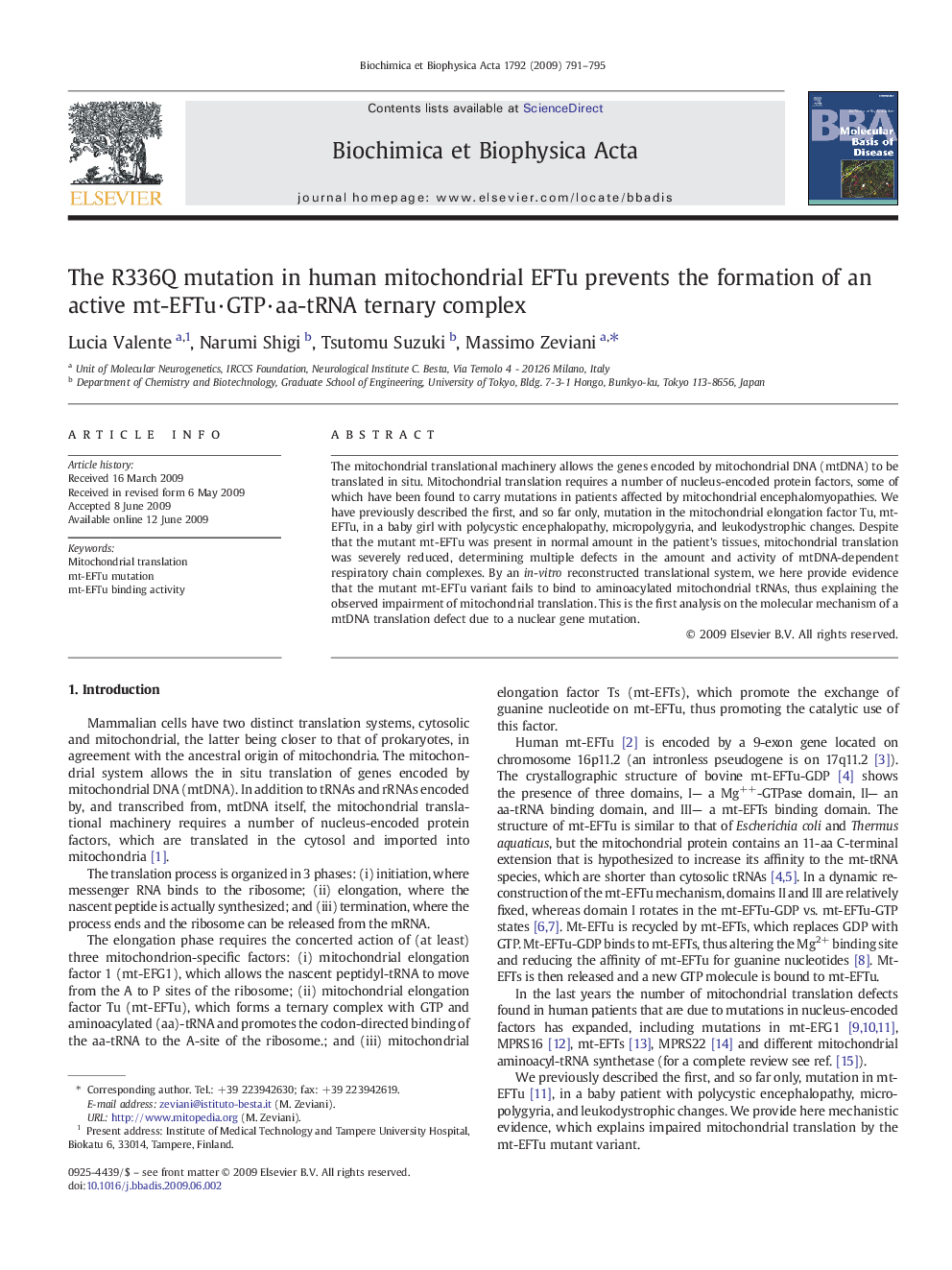| Article ID | Journal | Published Year | Pages | File Type |
|---|---|---|---|---|
| 1905509 | Biochimica et Biophysica Acta (BBA) - Molecular Basis of Disease | 2009 | 5 Pages |
The mitochondrial translational machinery allows the genes encoded by mitochondrial DNA (mtDNA) to be translated in situ. Mitochondrial translation requires a number of nucleus-encoded protein factors, some of which have been found to carry mutations in patients affected by mitochondrial encephalomyopathies. We have previously described the first, and so far only, mutation in the mitochondrial elongation factor Tu, mt-EFTu, in a baby girl with polycystic encephalopathy, micropolygyria, and leukodystrophic changes. Despite that the mutant mt-EFTu was present in normal amount in the patient's tissues, mitochondrial translation was severely reduced, determining multiple defects in the amount and activity of mtDNA-dependent respiratory chain complexes. By an in-vitro reconstructed translational system, we here provide evidence that the mutant mt-EFTu variant fails to bind to aminoacylated mitochondrial tRNAs, thus explaining the observed impairment of mitochondrial translation. This is the first analysis on the molecular mechanism of a mtDNA translation defect due to a nuclear gene mutation.
